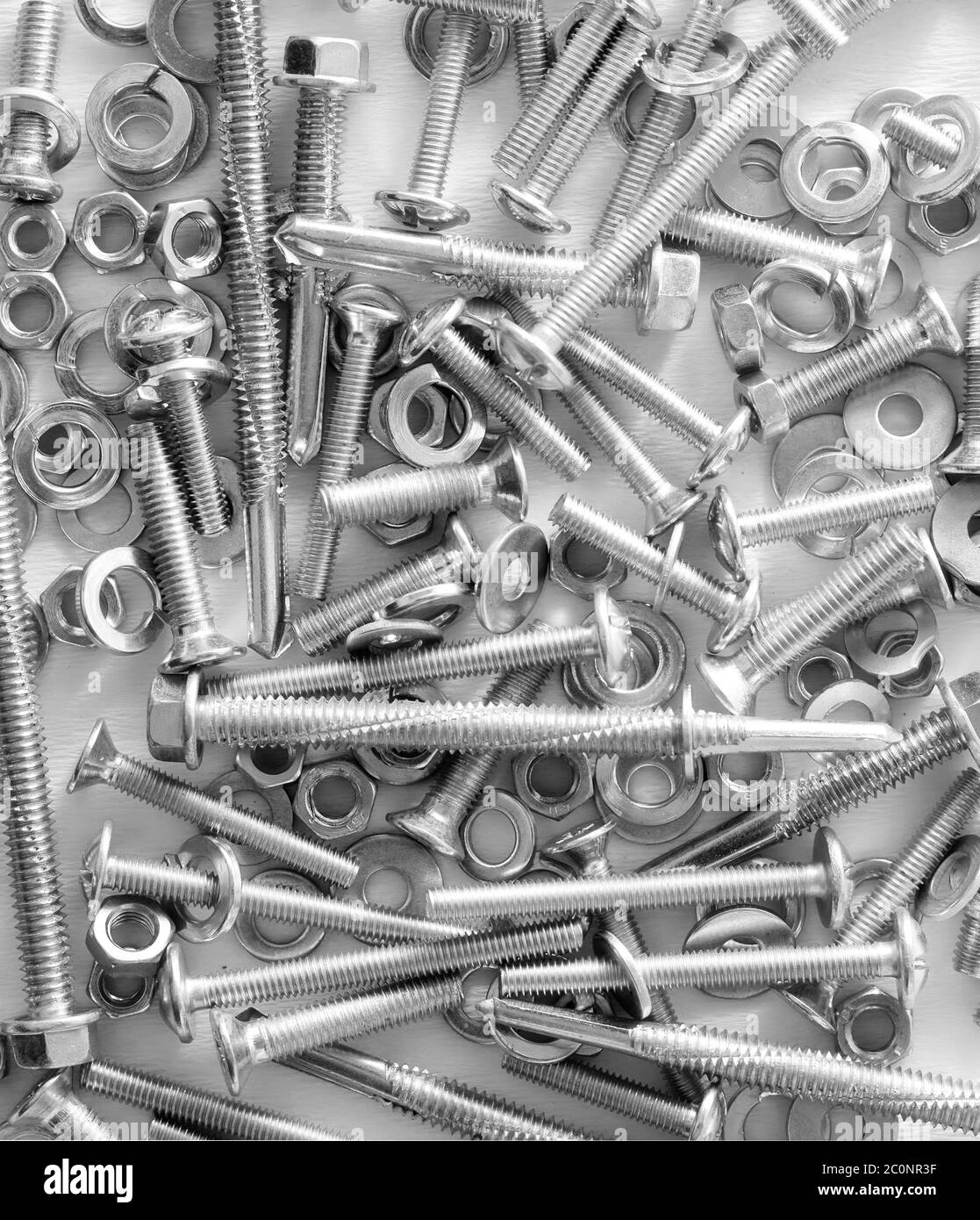Fasteners and Bolts in Daily Life: More Than You Think

As you ponder on the components that keep our environment together, fasteners might not be the initial things that come to thought. However, these basic yet necessary fasteners play a critical role in a variety of applications, ranging from the items we use to the vehicles we drive. Understanding the variety and functionality of nuts and bolts can greatly enhance our capability to address DIY projects, engage in home improvement tasks, or even perform routine automotive repairs.
In this thorough guide, we will explore the many types of fasteners available, delving into their specific uses and benefits. Whether you are a experienced builder or a interested novice, this guide aims to equip you with the information you need to choose the suitable fasteners for your tasks. Let us dive into the fascinating world of these fasteners and uncover how these humble components are more crucial in our daily lives than we may realize.
Comprehending Fasteners and Bolts
Nuts and nuts are vital components utilized widely in multiple contexts, from common domestic tasks as well as industrial uses. A fastener is commonly a elongated cylindrical piece of metal with spirals spiraling along its body, allowing it to allows it to be attached into a connector. The nut, commonly shaped like a hexagon in form, fits onto the screwed end of the fastener, establishing a stable bond when secured. This basic yet efficient system is crucial for binding elements together, providing stability and strength in a wide range of frameworks and devices.
Different kinds of fasteners and bolts function specific roles, and understanding their unique features can significantly boost your project results. For case, hexagonal bolts are commonly utilized for general construction, while carriage bolts are ideal for attaching wood to timber or steel. Lag bolts are specially made for high-stress jobs, often used in framing or supporting settings. By selecting the suitable type, you can boost the dependability of your connections and avoid likely problems.
Furthermore, the substances and coatings of nuts and nuts are crucial considerations to consider. Stainless offers excellent rust resistance, making it suitable for external uses, while brass provides good transfer in wiring projects. Zinc-plated and galvanized choices are designed to combat rust and corrosion, extending the longevity of the fasteners. Each choice contributes to the complete sturdiness and efficiency of your joint, and understanding the distinctions can aid you decide on informed options as you tackle various projects in your DIY or work-related tasks.
Types and Applications
In the process of picking hardware for tasks, comprehending the different types of nuts and bolt fasteners and their designated functions is important. Such as, hex bolts are some of the most widely used fasteners in construction, because of their versatility and great sturdiness. They are ideal for securing components in robust applications, while carriage bolts feature a circular head and are commonly used in timber building. These differences allow for tailored solutions based on the medium and demands of the task at hand.
Within automotive repairs, specific types of nut fasteners and bolts are essential for guaranteeing safety and efficacy. For example, flange nuts furnish a more extensive bearing surface that spreads the load and lowers the risk of loosening, making them ideally fitting for active environments found in cars. Similarly, https://nicolaisen-loomis-2.federatedjournals.com/fasteners-and-components-an-green-industrial-approach are crafted to stop self-loosening, adding an additional layer of safety to key components of the automotive industry. Comprehending these distinctions helps technicians choose the appropriate fasteners for different applications.
For DIY house renovation projects, the decision between wood and metal fasteners can considerably influence the result. Wood screws often demand specialized screws that suit the material's attributes, while metal projects are enhanced by more robust bolts with higher load-bearing capacity. When planning a project, it’s essential to take into account both the context and engineering needs, guaranteeing that the chosen nuts and bolts will work dependably over time. Familiarity with these categories and applications not only improves project success but also nurtures a deeper appreciation for these essential components in routine life.
Materials and Specialized Fasteners

When selecting nuts and bolts, the materials they are composed of play a key role in their efficacy and application. official website offer strength and durability, making them ideal for a wide array of projects. For environments susceptible to rust, stainless steel fasteners present a dependable choice due to their resistance to oxidation and deterioration. Brass and titanium are also common alternatives, each bringing distinct properties such as light applications and superb corrosion resistance, respectively. Comprehending these materials helps ensure the durability of your projects.
Specialty fasteners are designed for specific applications and can make a significant difference in performance. Tamper-proof nuts and bolts, for example, improve security by stopping unauthorized access to assemblies. Plastic lock nuts are another distinct option, providing added friction to resist loosening over time, which is especially beneficial in vibration-prone environments. Recognizing when to use these specialized fasteners can help optimize the efficiency of your construction or repair work.
Other specialized fasteners include expansion bolts and anchor bolts, both essential for securing fixtures to various substrates. Expansion bolts expand once inserted, providing maximum holding power, making them suitable for heavy loads. Anchor bolts play a crucial role in foundation work, providing stability and support for buildings. By choosing the appropriate specialty fastener for your needs, you can improve the overall quality and security of your projects.
